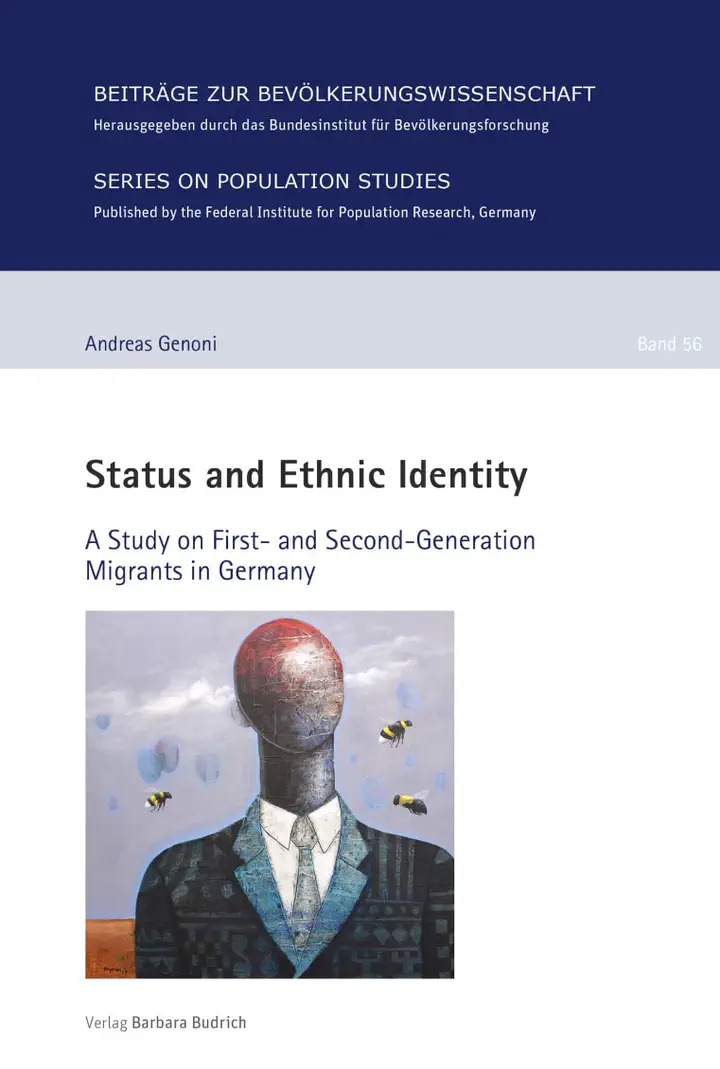Status and Ethnic Identity. A Study on First- and Second-Generation Migrants in Germany
 Cover image: “The Pursuit of Happiness” by Segun Aiyesan
Cover image: “The Pursuit of Happiness” by Segun Aiyesan
Abstract
The interplay of migrants’ minority and majority identity is an important indicator for social climate, interethnic dialogue and migrant well-being. However, ethnic identity is often studied one-dimensionally, either focussing on minority or majority identity. Migrants’ social status takes a crucial role in conveying such a one-dimensional perspective. Status is often expected to promote mutual exclusiveness of identities, i.e. relating negatively to minority identity and positively to majority identity. But empirical evidence suggests that across and within migrant generations, the relationship between status and ethnic identity is more complex.
This book explores possible conditions that contribute to this increased complexity. It takes a bidimensional and intergenerational perspective on ethnic identity, aiming to improve our understanding of how it relates to status. Starting from a general theoretical model, status and ethnic identity are studied with respect to migrant visibility, status mismatch and exposure time.
Analysing German survey data of 25 to 65 year old first- and second-generation migrants (N = 2,094), the book reveals that status is not necessarily associated with assimilated identity but positively related to majority identity in both generations. The findings further indicate support for the so-called “Integration Paradox.” High-status migrants whose migration background is more visible and migrants with high education and comparably low job positions (status mismatch) show weaker majority identity than non-mismatched and less visible high-status migrants. Also, visible high-status and mismatched-status migrants show weaker minority identity. Compared to status, however, the duration of living in the receiving society is more important for ethnic identity.
Overall, the results indicate an assimilation trend that tends to be faster for higher-status migrants in the first, but not the second generation. Nevertheless, there are signs of longer-term status effects, particularly regarding migrants with comparably weak ethnic identity. Importantly, this migrant group distributes across status levels, encouraging further research.